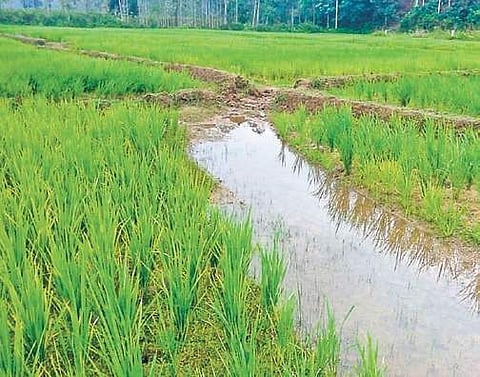

KALPETTA: Stanley Augustine from Poothadi panchayat in Wayanad was shattered after his paddy crop, cultivated in a purely organic manner, was destroyed in the recent rain and floods.What troubled him more was the long-term damage the deluge had caused to his one-acre paddy field. He, along with scores of other small-scale organic farmers, will now have to wait for at least three years for the fields to generate the same yield.
The deluge has dealt a body blow to organic farming in the hilly district which was slowly gaining momentum as a silent agri revolution. Unlike conventional farming, organic cultivation needs at least three years as ‘conversion period’ for the soil to turn fully organic-friendly.
According to statistics with the Agriculture Department, at least 2,250 hectares — officially certified by the government as organic farmland — were damaged in the recent heavy rain and ensuing floods. If organic farms of private groups are taken into account, the extent of damage would be much more.
“Over 500 hectares had already come under organic cultivation in the district since 2013. Two years ago, it was extended to an additional 1,750 hectares. But the heavy rain and floods have washed away organic matter from the soil taking the entire effort back to square one,” said Shaji Alexander, Principal Agricultural Officer, Wayanad.
Though the damage to organic farms pales in comparison to the 1.6 lakh hectare total crop loss in the district, the blow it has caused to the eco-friendly movement is deadly. There are concerns organic farmers may revert to conventional chemical fertiliser-based farming.
Though Augustine may not abandon organic farming, he said around 400 farmers have slowly lost interest and their number has dwindled to around 100. “Instead of treating the entire agricultural loss as a single entity, authorities should clearly enumerate the loss to organic farms and compensate the farmers accordingly as they need more support,” said Augustine.